Our Health Library information does not replace the advice of a doctor. Please be advised that this information is made available to assist our patients to learn more about their health. Our providers may not see and/or treat all topics found herein. Total hip replacement is a step-by-step surgery to replace the hip socket and the ball at the top of the thighbone (femur). Doctors use metal, ceramic, or plastic replacement parts. The parts may be attached to the bones in one of two ways. They may be: Your doctor may use regional anesthesia. This means you can't feel the area of the surgery. You'll have medicine that makes you unaware and lightly asleep. Or a doctor may use general anesthesia. This means you'll be asleep during surgery. Which type of anesthesia you get depends on your doctor and your overall health. Your doctor might also ask what you prefer. Hip replacement surgery is done through one or two cuts (incisions). The cuts may be toward the front (anterior) of your hip. Or they may be on the side or toward the back (posterior). Your doctor will talk with you about which type of surgery might be best for you. Osteoarthritis is the most common reason for hip replacement. In osteoarthritis, the cartilage that protects and cushions the joints breaks down over time. As the cartilage wears down, the bone surfaces rub against each other. This damages the tissue and bone, which then causes pain. The joint space in this hip joint is narrowed due to cartilage loss and bone spur formation. Damaged cartilage and bone are removed from the hip socket (acetabulum) and the upper end of the femur. Hip socket (acetabular) component is placed. Femoral component is placed. Hip replacement is complete. On the day of surgery, you'll learn how to get in and out of bed. You'll also learn how to walk with a walker, crutches, or a cane. By the time you leave the hospital, you'll be able to safely sit down and stand up, dress yourself, use the toilet, and bathe. As soon as possible, you'll start physical therapy. You'll learn exercises to help you get stronger. You'll also be taught how to move your body without dislocating your hip. During the first week or so after surgery, you'll need less and less pain medicine. For a few weeks after surgery, you'll probably take medicine to prevent blood clots. It usually takes a few months to get back to full activity. After you recover from surgery, you may have much less pain than before and a better quality of life. Sometimes hip replacements have to be done again. It depends on your age, how much stress you put on the joint, and how well your new joint and bones mend. Your weight can make a difference. Every extra pound of body weight adds 3 pounds of stress to your new hip joint. Controlling your weight can help your new hip joint last longer. It should also last longer if you avoid hard physical work and sports that stress the joint. In the future, make sure to let all health professionals know about your artificial hip so they will know how to care for you. If you have surgery through the side or back or your hip, you'll need to follow "hip precautions" until your hip is fully healed. Most often, this means that you: There are different precautions after anterior surgery. Your physical therapist will teach you how to move safely. For example, while you're healing, the therapist may suggest that you: After traditional surgery, you'll slowly return to most of your activities. Total hip replacement surgery is usually done when hip pain and loss of function caused by osteoarthritis become severe and when treatment no longer relieves pain. Hip replacement is sometimes done after a hip fracture. Surgery usually works well. You will probably have much less pain and be able to do most of your daily activities more easily. But recovery does take time and patience. Most hip replacements (about 90 out of 100) last at least 15 years. And more than half last for 25 years or more.footnote 1 It depends on your age, how much stress you put on the joint, and how well your new joint and bones mend. Your weight can make a difference. Every extra pound of body weight adds 3 pounds of stress to your new hip joint. Controlling your weight will help your new hip joint last longer. The risks of hip replacement surgery can be divided into two groups. These risks include: These risks may happen months to years after the surgery. They include: Current as of: July 24, 2025 Author: Ignite Healthwise, LLC Staff Current as of: July 24, 2025 Author: Ignite Healthwise, LLC Staff Clinical Review Board This information does not replace the advice of a doctor. Ignite Healthwise, LLC disclaims any warranty or liability for your use of this information. Your use of this information means that you agree to the Terms of Use and Privacy Policy. Learn how we develop our content. To learn more about Ignite Healthwise, LLC, visit webmdignite.com. © 2024-2025 Ignite Healthwise, LLC.Total Hip Replacement Surgery
Surgery Overview
How Is It Done
Normal hip joint
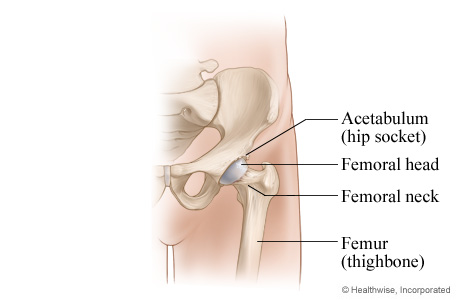
Osteoarthritis of the hip
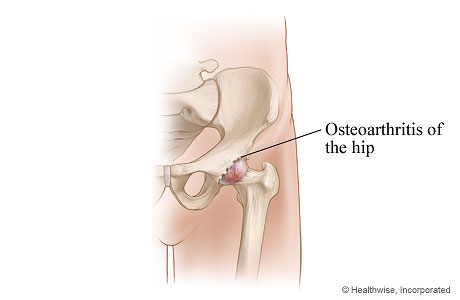
Removal of cartilage from the hip socket and femur
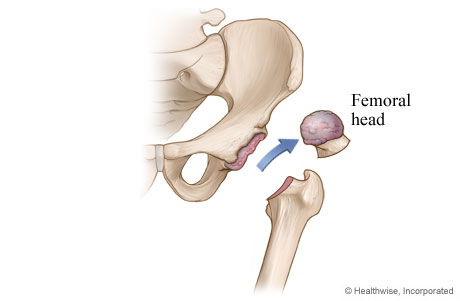
Placement of hip socket component
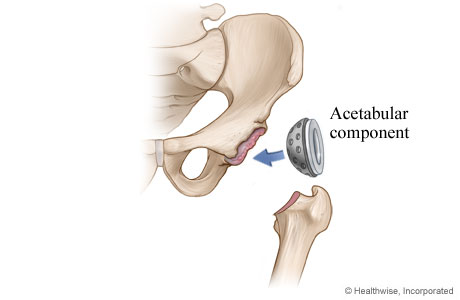
Placement of femoral component
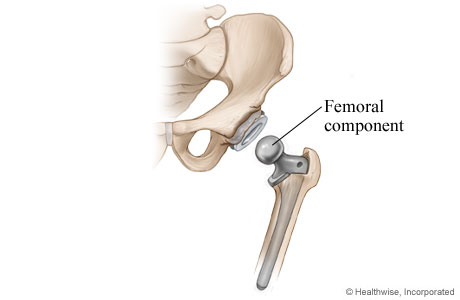
Completed hip replacement
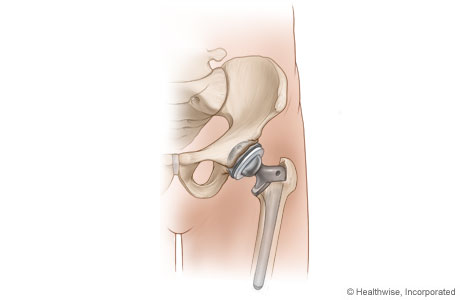
What To Expect
Precautions
Exercise and activity
Learn more
Why It Is Done
Learn more
How Well It Works
Risks
Risks of the surgery and recovery period
Long-term risks
Credits
Clinical Review Board
All Ignite Healthwise, LLC education is reviewed by a team that includes physicians, nurses, advanced practitioners, registered dieticians, and other healthcare professionals.
All Ignite Healthwise, LLC education is reviewed by a team that includes physicians, nurses, advanced practitioners, registered dieticians, and other healthcare professionals.
Our Health Library information does not replace the advice of a doctor. Please be advised that this information is made available to assist our patients to learn more about their health. Our providers may not see and/or treat all topics found herein. Current as of: July 24, 2025 Author: Ignite Healthwise, LLC Staff Clinical Review BoardTotal Hip Replacement Surgery
All Ignite Healthwise, LLC education is reviewed by a team that includes physicians, nurses, advanced practitioners, registered dieticians, and other healthcare professionals.



